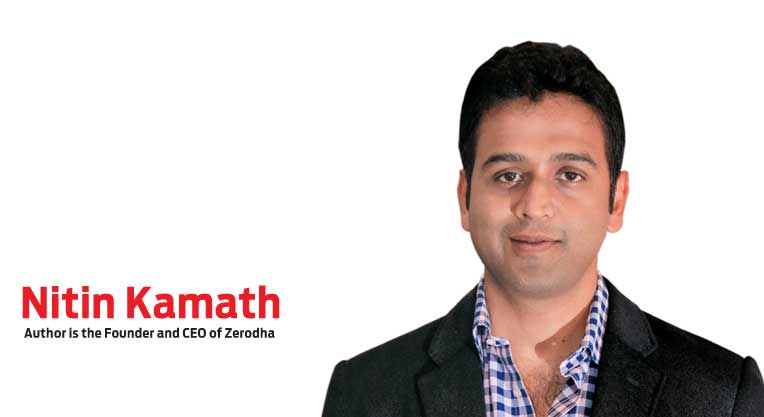I started trading the markets very early (over two decades ago) and was extremely aggressive in how I managed my finances. I used to put all eggs in one basket, borrow, regardless of the cost of funds to invest, and hoped to get lucky—the main reason for going bust twice early on. I learnt most of my life lessons the hard way, working in a call centre in the nights for over three years and trading the markets during days, after going bust. As a bonus, however, I could roll my R’s and type quite fast.
Following this, I read a bunch of books on investing, trading, what successful people follow. I learnt, but couldn’t put any of it to practice. When reading Market Wizards by Jack Schwager, I came across an interview where the expert spoke about how he tries to do whatever he can to ensure that he is never in a situation where he has historically displayed stupidity. Personally for me, from sports to how I manage money, I realised I take the worst decisions when I panic. It also has to do with physiology, when you panic, blood rushes to your head.
My life turned around from the time I started making small changes that gave me the best odds of staying zen. The biggest problem my wife has with me today is that I don’t react or get angry with her for any reason!
From the personal finance perspective also, I learnt a lot from the book. If you are taking extremely aggressive concentrated bets with leverage or derivatives, try not to risk more than 10 per cent of your liquid net worth and try not to lose more than one per cent on a single trade. But the question most would have is, if you have a small corpus like I did when starting off, 10 per cent would probably be insignificant. The thing to remember is that you can’t get rich overnight even though your hindsight bias might say otherwise. The best odds of getting rich is by letting your money compound. As Einstein said, it's the eighth wonder. It is about making money consistently for a long period and this is possible only if you nurture the right habits.
The benefit of taking smaller individual trades and knowing the maximum you can lose on a trade upfront was that I could create a situation where I have my stress levels and panic well under control. Suddenly, I found that I had the bandwidth to do a lot more. This allowed me to set up a sub-broking business, and without the pressure of putting food on the table from trading or investing - my returns improved significantly with time.
Even today, I take extreme amounts of risk with up to 10 per cent, but the remaining 90 per cent is diversified across stocks, tax-free bonds, government securities, and real estate. From the start, I have had very little exposure to mutual funds as investing/trading is I believe my core competency. But for someone who isn’t proficient, mutual funds, smallcases, and ETFs are a great place to start.
One thing we Indians forget is that we are not going to be around forever. There could be an incident at any time and if there are dependents, it is important that you are insured sufficiently to help them sustain when you are not around. A term insurance policy isn’t really an investment, but from the time I bought the first one, there has been this peace of mind that has helped me make better decisions. similarly, with a health insurance policy as well.
But all said and done, the true value of money is only when it is spent. Do not abstain from buying that watch, piece of jewellery, car, holiday, or anything that can make you happy. Avoid borrowing and spend by building a secret special corpus from your savings and investments.
"All you touch and all you see is all your life will ever be" - Pink Floyd.
Your’s Faithfully,
Nitin Kamath
Author is the Founder and CEO of Zerodha

